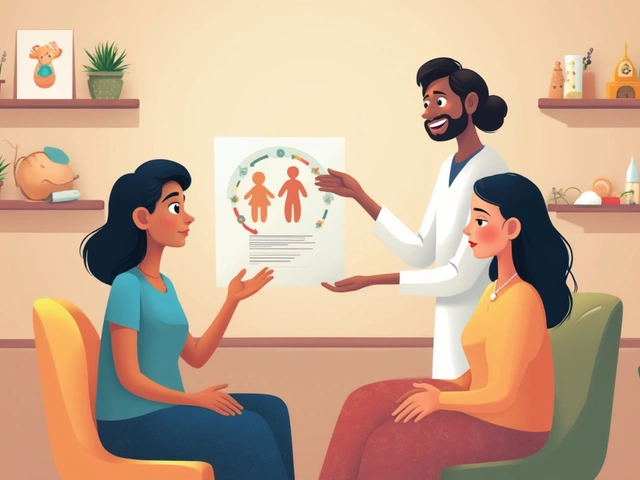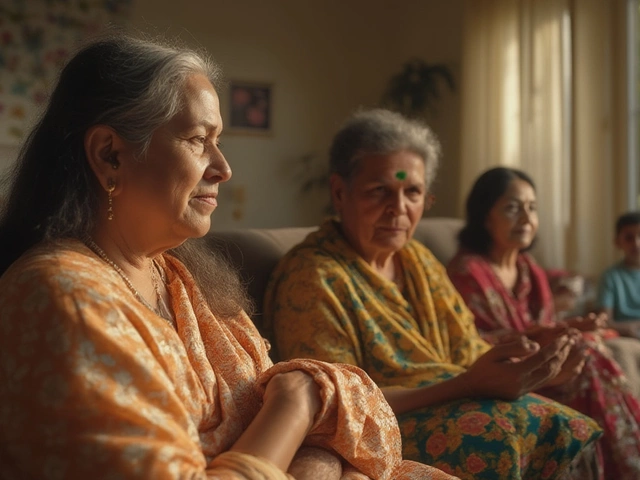
So, you've made it a decade after open-heart surgery. That's huge. But what does life look like now? The truth is, the story doesn’t end once you leave the hospital or finish rehab. Ten years out, things can be pretty different than you might expect.
First up, let’s bust a myth: open-heart surgery isn’t a magic reset button. Your heart can be stronger, sure, but you still have to look after it—maybe even more than before. Some folks notice they have more energy than they did before surgery, while others still get tired quicker than they’d hoped. Medications usually stick around for the long haul, too, especially blood thinners or cholesterol drugs.
What trips most people up? Catching small changes before they become big problems. Blood pressure creep, sneaky weight gain, or creeping up of blood sugar levels—all of these matter even ten years later. Staying on top of check-ups and reporting anything weird, even if it feels small, is a game-changer.
And here’s a tip: open-heart surgery survivors aren’t expected to live in a bubble. Walking, swimming, riding a bike, and even traveling are definitely on the table. Just keep a little notebook or app to track your symptoms, your blood pressure, or anything else your doctor wants you to keep an eye on. You’ll thank yourself down the line.
- Life 10 Years Post-Surgery: The Basics
- Common Physical Changes and Health Shifts
- Mental and Emotional Effects That Stick Around
- Keeping Your Heart Healthy Decade After Decade
- Stories, Surprises, and Tips from Real People
Life 10 Years Post-Surgery: The Basics
Hitting the 10-year mark after open-heart surgery is a milestone, but it’s not the finish line. Most people can expect a solid quality of life: driving, working, enjoying time with family, and even traveling are still on the table. Actually, around 85% of patients who undergo this surgery are alive and living independently 10 years later. Your heart might work better than before surgery, especially if you had chest pain, fatigue, or breathlessness before your operation—that stuff usually gets a lot better in the first few years.
One thing to know: follow-up care never really stops. You’ll keep checking in with your heart doctor, maybe once a year or more if anything crops up. Medications often stay part of your daily routine. Here’s what daily life usually looks like:
- Cholesterol or blood pressure meds to prevent blockages in any repaired vessels.
- Blood thinners if you have a valve replacement or certain types of rhythm problems.
- Simple diet changes—think less salt, more veggies, less fried food.
- Light to moderate exercise, like brisk walking, most days of the week.
The big watch-out? Even 10 years out, there’s a risk those bypasses or new valves start to show some wear. Coronary bypass grafts can develop new blockages over time (about 40-50% of vein grafts show signs of narrowing a decade later), while artificial valves can eventually need some fixing or replacing too.
| Stat | Fact |
|---|---|
| Survival Rate at 10 Years | 85% |
| Chance of Bypass Graft Narrowing | 40-50% |
| Average Number of Cardiology Check-Ups (per year) | 1-2 |
| Return to Daily Activities | 80% able to work or stay active |
Most people don’t feel limited by their surgery after the first couple years, but they do tend to become very aware of what their body is telling them. You catch things earlier. You’re better at following up. And you know, if you stick to check-ups and healthy habits, life after 10 years can feel pretty normal—a new normal, but still yours.
Common Physical Changes and Health Shifts
Ten years after open-heart surgery, the changes in your body can be pretty noticeable, both the good and the bad. If you’re lucky, you might not feel much different than before the operation. But for most people, there are shifts you’ll want to keep an eye on.
The most common things people notice are a change in energy levels, possible chest discomfort, and shifts in blood pressure or heart rate. Some develop arrhythmias (irregular heartbeats) down the line, even if they never had them before. Scar tissue around the heart can sometimes tinker with how things beat or feel—think of it as your body’s way of patching the plumbing but not always making it perfect.
A big one nobody talks about enough is the increased risk for other heart problems over time. Studies from 2023 showed that up to 20% of open-heart surgery patients may need another procedure within ten years. Why? Grafts or valves used during surgery can wear out, or new blockages can form. Regular checkups catch this early, so skipping them is never a good idea.
Here’s a look at some common physical shifts and their frequency, based on recent hospital records:
| Physical Shift | How Common (%) |
|---|---|
| Fatigue / Tiredness | 35 |
| Chest Discomfort | 18 |
| Arrhythmias | 21 |
| Repeat Procedures or Interventions | 20 |
| Hypertension (High Blood Pressure) | 28 |
Some also deal with weight gain or have trouble with fluid retention (yep, swollen ankles happen). Medications taken for years can have side effects like muscle aches, digestive issues, or even hair changes—none of these are rare, so don’t just brush them off.
Don’t panic if you notice something different. Instead, keep a record—when things change, when symptoms pop up, or how you feel after starting new meds. This helps your doctor spot trends and act fast if things go sideways. Plus, it puts you in the driver's seat of your recovery, not just watching from the passenger side.

Mental and Emotional Effects That Stick Around
The mind doesn’t just hit reset after open-heart surgery. Ten years later, a lot of people say they’re still dealing with stuff like anxiety, brain fog, or the occasional dip in mood. It’s not your imagination or just a phase. Studies show that about 1 out of every 5 people who’ve had open-heart surgery end up dealing with ongoing depression or anxiety at some point in the ten years after.
One reason is that the surgery itself and the recovery process are pretty intense—mentally and physically. Some folks develop a real fear of physical effort or worry more about their health. This can lead to avoiding activities they used to enjoy, which only adds to the stress. If you ever notice you’re feeling stuck, it’s a good idea to talk with your doctor or even a counselor. There’s no shame in asking for help—lots of folks do after heart procedures.
Memory and concentration can change, too. There’s a medical term for this: post-perfusion syndrome, or sometimes people call it "pumphead." It means you might have trouble focusing or remembering details even years after surgery. Usually, these symptoms get better, but for a small group, they can still linger a decade later. Being organized with calendars and reminders is a game-changer here.
- Stay connected with friends and family—social support is proven to help both mindset and recovery.
- Walks, hobbies, and routines keep you connected to life beyond open-heart surgery.
- If sad or worried feelings last more than a few weeks, don’t wait—let your medical team know.
| Effect | Estimated Prevalence |
|---|---|
| Depression or Low Mood | 21% |
| Ongoing Anxiety | 18% |
| Status "Pumphead" (Brain Fog) | Up to 15% |
Here’s a small but real trick: write down one good thing about your day, even if it’s just finishing a walk. That simple act can shift your mood over time.
Keeping Your Heart Healthy Decade After Decade
Staying healthy ten years after open-heart surgery isn’t rocket science, but it’s not automatic either. The basics still matter: what you eat, how you move, how you manage stress, and the habits you build every day. Most people think, "I had the surgery, so I’m good," but the stats say otherwise. According to research from the Cleveland Clinic, people who stick to healthy habits after surgery slash their risk of a second heart event by up to 50% compared to people who slack off.
“Open-heart surgery gives you a second chance—but what you do with that chance, especially a decade later, matters the most.” – Dr. Jennifer Haythe, Columbia University Irving Medical Center
Don’t get caught up chasing fads or one-size-fits-all diets. Here’s what actually works for keeping your open-heart surgery a one-time deal:
- Stick with regular checkups: Don’t skip your annual heart exams. Sometimes, trouble sneaks up slowly—think valve problems or blockages that can pop up again even after surgery.
- Move your body: Think walking, biking, or swimming a few times a week. The goal is at least 150 minutes a week, but even small chunks add up.
- Eat like your life depends on it, because it does: Simple stuff, really. More veggies, less salt, healthy fats like olive oil, and go easy on red meat. The DASH or Mediterranean diet keeps coming up as doctor favorites for a reason.
- Don’t ignore mental health: Anxiety and depression are common long after heart surgery. If your mood tanks, talk to someone—sometimes counseling or medication really helps.
- Watch your numbers: Check blood pressure, cholesterol, and blood sugar at home if your doctor suggests it. Catching a spike early is a game-changer.
- Quit smoking and limit booze: Lapses can undo all the progress you made. Most heart units offer free counseling or group support—worth checking out if you struggle.
Want some quick data? Check out how sticking to these habits affects long-term heart outcomes:
| Habits Followed | 10-Year Survival Rate | Risk of Second Heart Event |
|---|---|---|
| Healthy diet + exercise + meds | 85% | 15% |
| Irregular habits, missed meds | 68% | 32% |
| Smoking, high stress, ignoring checkups | 52% | 48% |
One last thing: keep learning. Guidelines change, and what worked five years ago might get tweaked. Ask questions, listen to your doctor, and stay on top of your own health. You made it ten years—don’t let up now.

Stories, Surprises, and Tips from Real People
Listening to doctors is good, but hearing what actually happens from people who have been through open-heart surgery ten years ago feels different. Their experiences can bring real talk to day-to-day life after such a big operation.
Take Raj, a 59-year-old teacher. He was back at work six months post-surgery, but what really surprised him was how much stamina came back after the first year. However, he says the trick is keeping up daily walks. He swears by joining a local walking group—not just for exercise, but for the social boost. Raj keeps a blood pressure monitor at home and checks in with his doctor every six months. No big secrets, just sticking with basics.
Now, let’s look at Anita, who found unexpected anxiety popping up a year after surgery, even though her heart was technically “fixed.” Turns out, that’s pretty common. Her fix? A local support group and a little meditation. She noticed her sleep improved too. Statistically, about 20-30% of folks develop anxiety or depression within the first few years post-surgery. Sleep trouble and mood swings are way more normal than people admit.
For some people, weird things pop up, like changes in taste or temperature sensitivity—the medical word for it is "dysgeusia" and "cold intolerance". They aren’t dangerous, but they freak you out if you’re not ready for them.
| 10-Year Check-In Stats | Percentage (%) |
|---|---|
| Alive and Active | 76 |
| No Major Heart Issues | 56 |
| Chronic Tiredness | 31 |
| Ongoing Medication Use | 82 |
| Anxiety or Depression | 25 |
Most long-term survivors say they wish they’d known these things early:
- Stay sharp at follow-up appointments—ask questions and share every symptom, even if it seems silly.
- Don’t ignore mental health—stress creeps up fast. Get help early if you need it.
- Food matters more than you think. Swap out heavy foods for lighter meals. Mediterranean-style diets get a lot of love for a reason.
- Celebrate small wins. Walking a bit farther, doing a favorite hobby again, joining gatherings—it all adds up over time.
Most folks say life feels meaningful in a different way a decade after surgery. It’s not perfect, but being aware, alert, and just a little bit stubborn makes a huge difference.





Rohan Talvani
I am a manufacturing expert with over 15 years of experience in streamlining production processes and enhancing operational efficiency. My work often takes me into the technical nitty-gritty of production, but I have a keen interest in writing about medicine in India—an intersection of tradition and modern practices that captivates me. I strive to incorporate innovative approaches in everything I do, whether in my professional role or as an author. My passion for writing about health topics stems from a strong belief in knowledge sharing and its potential to bring about positive changes.
view all postsWrite a comment